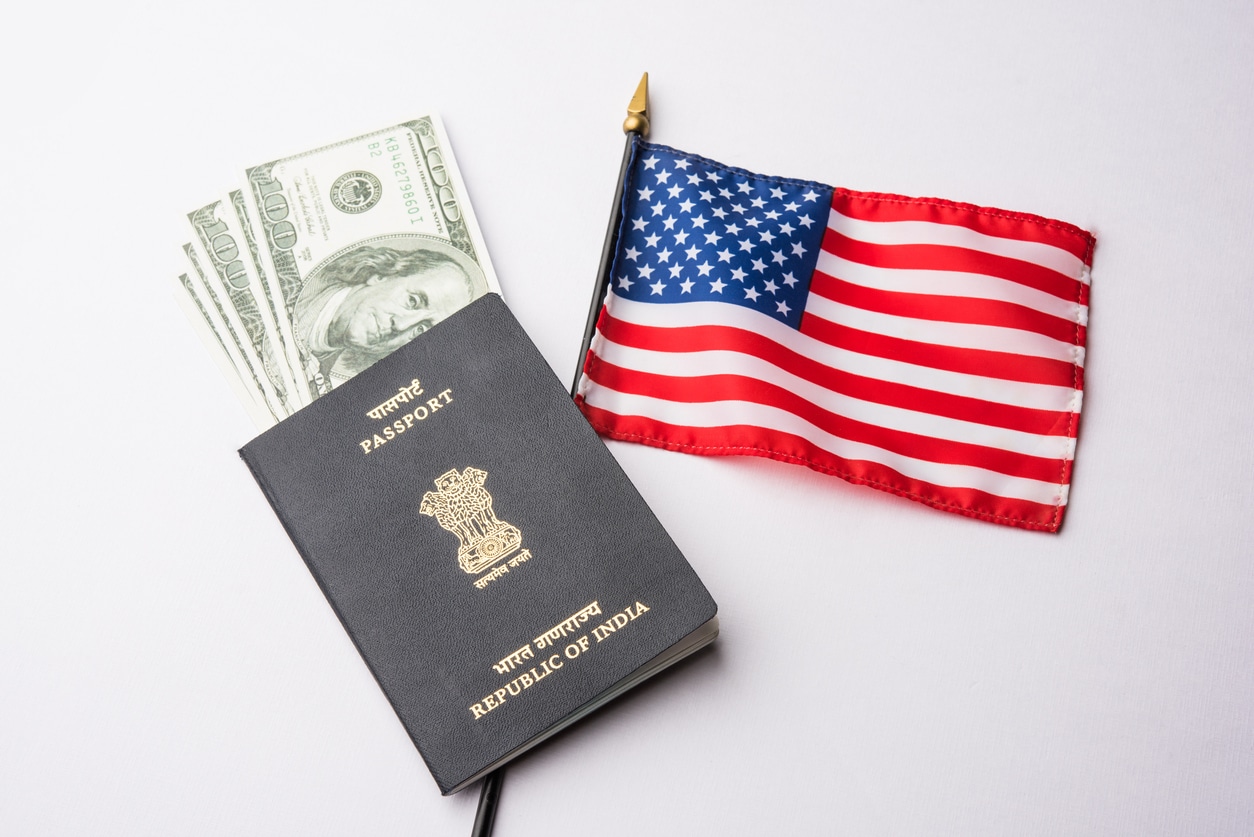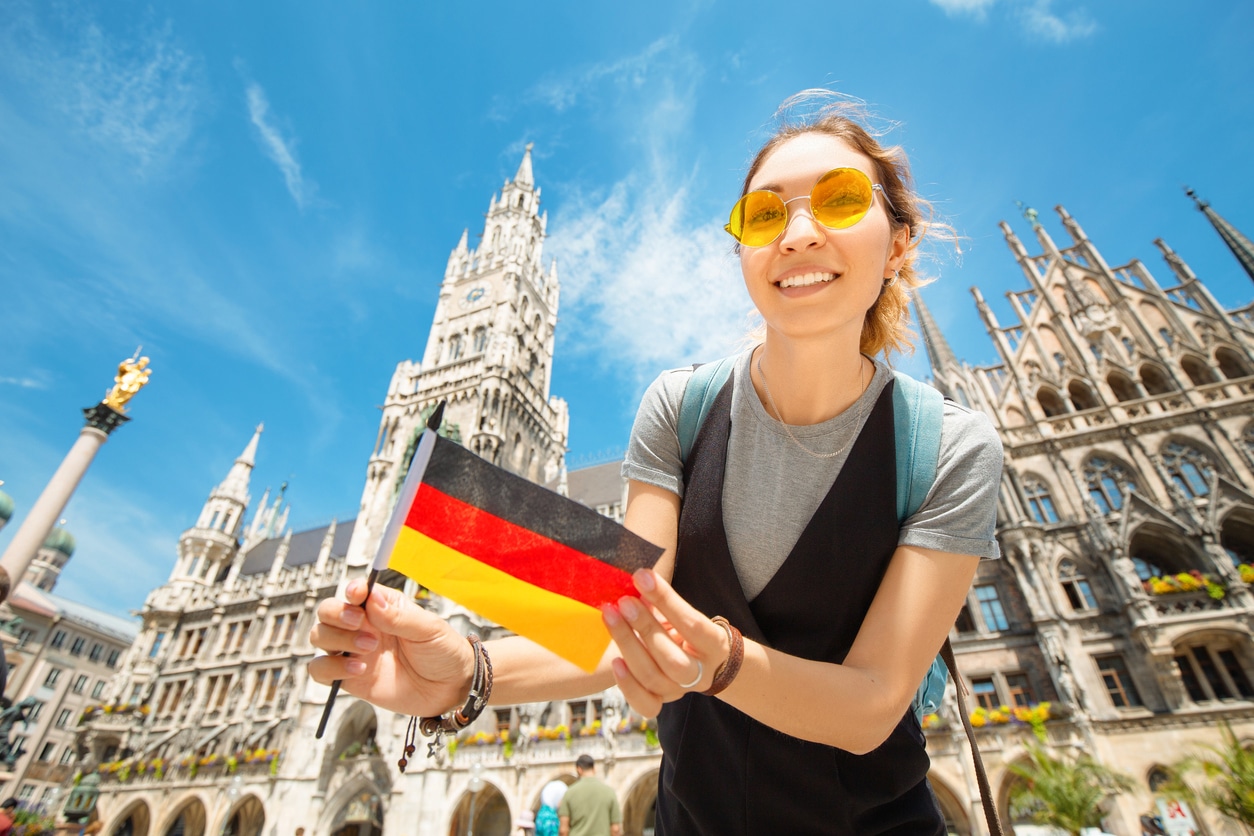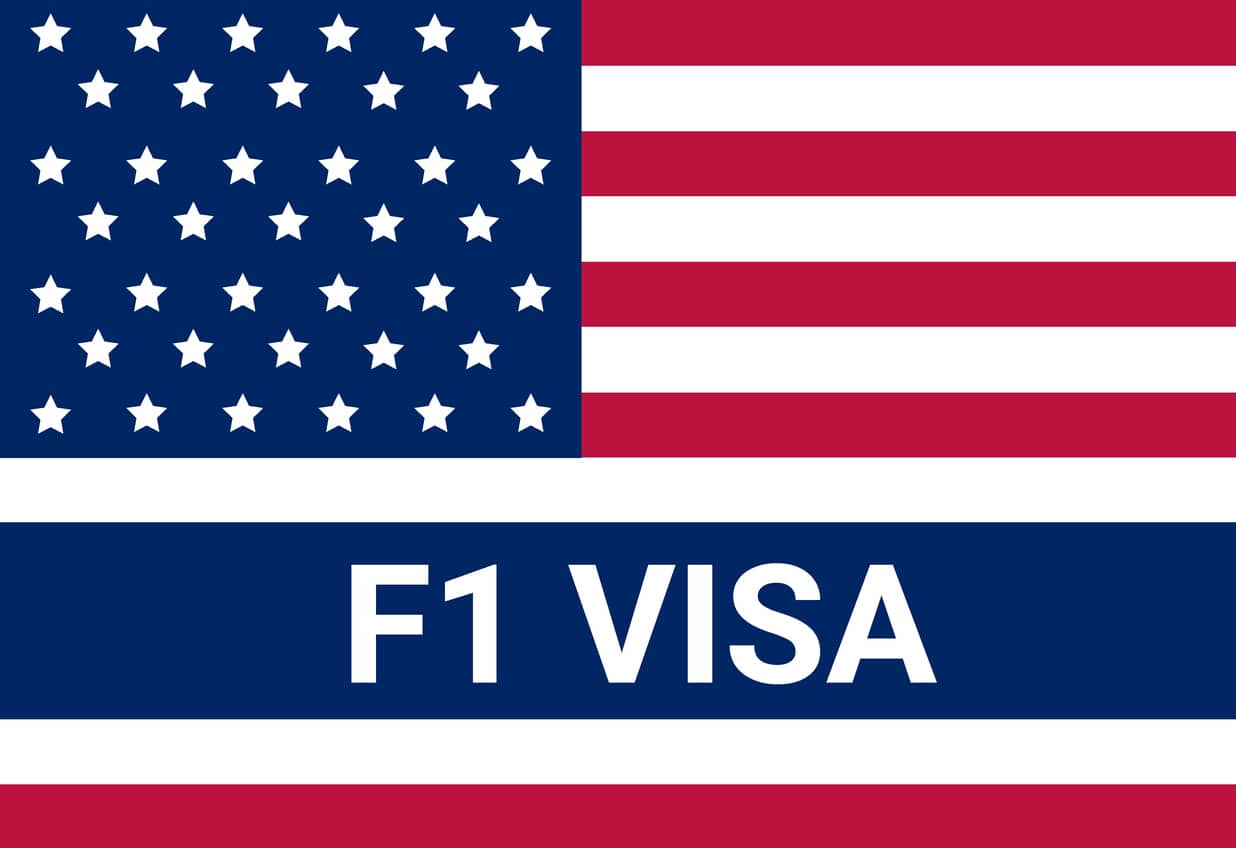It can be discouraging to be declined for an F-1 visa, but it’s important to approach the next interview with a strategic mindset. This article will provide helpful techniques for answering questions during an F-1 visa interview after a previous rejection.
To increase your chances of a favorable outcome, it’s important to understand the reasons for the initial rejection, update your documentation, emphasize your genuine intentions, address any previous concerns, and remain calm and confident throughout the process.
F1 Visa Slots
“F1 visa slots” usually refer to the times that U.S. embassies and consulates around the world have available for interviews for F1 student visas. These slots stand for the periods that applicants can arrange to have interviews to go over their qualifications and visa applications.
Candidates for F1 visas must reserve their interview times in advance, particularly in times of high demand, such as the weeks leading up to the start of the school year. Candidates should routinely check the website of the American embassy or consulate located in their nation for open positions and adhere to the appointment-scheduling requirements.
Candidates should also make sure they have all the paperwork needed and are prepared to make a strong case during the interview. This includes evidence of admission to a U.S. university, the ability to pay for their education, ties to their native nation, and a well-defined study and career goal.
Applicants can increase their chances of receiving the visa and following their academic objectives in the United States by quickly scheduling F1 visa slots and making sure they are well-prepared for the interview.
Also, don’t miss our comprehensive “Guide to Settle in the USA from India (2024).” Your roadmap to a smooth transition is just a click away!
Tips for F1 Visa Interview Questions After Rejection
You will need to confirm and prove a number of things in your F-1 student visa interview when applying part of your requirements for a USA student visa. These things include how you will pay for your education, your ties to your home country, your intention to return, your specific degree program, and the reasons you chose your university.
A visa may be refused for a variety of reasons. Depending on the category, your visa refusal letter will specify the reason for the denial. However, it might need to be more detailed. The predicted USA F-1 Visa rejection rate in 2022 was roughly 34.93%, while the exact figure varies greatly per nation; Homeland Security does not disclose exact figures.
Read the “Top 10 Common Questions You Should Expect During the US Student Visa Interview” and ace your interview with confidence.
Understanding the Basis for Denial
Finding out why your visa was denied is important. This information can be obtained by calling the embassy or consulate, or it can be found in the denial letter. Typical causes include inadequate funds, a lack of ties to one’s native nation, or imprecise research objectives.
Concentrate on Enhancements
Be ready to discuss any changes that have occurred since your last interview. Have you managed to acquire any more funding? Enhanced bonds with your nation of origin? Have you made your academic objectives clear?
Here are a few reasons behind the rejection interview:
1. Lacking Funds
You have to prove your financial ability to be granted a student visa so you can study in the United States. This entails presenting proof of funds sufficient to pay for housing, food, books, insurance, tuition, and other costs for a minimum of one year.
Should you be unable to provide evidence of sufficient funds, your visa application may be denied. It’s not just about a year; you have to demonstrate that you have the financial resources to complete your program, which may be two years for a master’s degree or four years for a bachelor’s.
The full cost of your program, not just the first year, should be taken into consideration while you’re creating your financial documentation.
2. No Plans to Go Back Home
When you are unable to provide proof that you will return home after completing your studies, your visa application may be denied. The officer interviewing you for a visa will inquire about your friends, family, and any property you own back home. They’ll inquire about your post-study intentions as well.
Some find it difficult to respond succinctly when asked what they plan to do once they graduate. The officer may become concerned that you won’t leave the country as a result. It’s critical to articulate your career goals in detail for the post-graduation period.
You should be prepared with a thoughtful response, particularly if you have family in the US or are from a nation where there is a greater likelihood of visa overstays. Perhaps discuss the kinds of professions you’re interested in or even bring up certain businesses you’d like to work for. It’s a good idea to include any plans you may have for marriage or home ownership following graduation.
3. Incorrect or Missing Documents
Sometimes, a visa application is rejected due to false, incorrect, or missing documents. This means that if the documents you provide do not match what you originally said on your application or university form, this is a problem for visa officers.
It is crucially important to ensure that the information provided in your DS-160 form matches the information on your application and university I-20 form. Any discrepancies between the two could raise red flags and potentially compromise your application.
Therefore, it is vital that you fill in all the details correctly, including your school and academic program information. Additionally, it is essential to mention all your previous study and work experience, especially if you are a Master’s student.
It is absolutely necessary to bring all the necessary documents with you to the interview. Just a bank statement may not be enough. You may also need paychecks from your parents, loan documents, and proof of other assets to show you can afford to study.
If your I-20 information changes after you apply for a visa interview, notify the embassy and obtain a new Form I-20. Also, always pay the SEVIS fee and bring proof of payment to the interview.
4. Academic Programme
Another common reason for visa denial is the choice of academic program. If you cannot convince the officer that you are really interested in your field of study or that you understand the program well, this could be a problem. This is especially true for students from certain countries that have had problems such as patent issues.
It is important to practice explaining why you have chosen your major and why you want to study at that school in the United States. Make sure you know your reason. Applying for your visa too late can also cause problems. Your visa depends on when your program starts, so if the officer thinks you won’t be able to start on time, they may reject your application.
Tips for US Visa Interview Dress Code
It’s crucial to prepare yourself by dressing professionally and appropriately for your F-1 visa interview. The following are some easy guidelines for dressing for success:
1. Dress formally: Put on a dress shirt, dress pants, or suit in a neutral hue, such as gray, navy blue, or black. Steer clear of casual attire such as sneakers, t-shirts, and jeans.
2. Keep accessories basic: Steer clear of gaudy jewellery or other items that could divert the interviewer’s attention. Remain with simple, traditional components.
3. Don’t overdo the fragrance: Either wear very little or none at all. It’s preferable to keep odors mild because strong ones may irritate certain people.
4. Maintain a polished appearance: Make sure your hair is in place. Women should style their hair properly, and men should be clean-shaven or have a well-groomed beard. Maintain neat, clipped nails.
5. Put on polished shoes: Opt for neat, polished closed-toe footwear. Steer clear of flip-flops, sandals, and casual shoes. Wearing formal shoes will make you seem put together.
6. Wear comfortably: Make sure your clothing fits properly and is cozy. Stay away from wearing anything excessively constricting or tight. Throughout the interview, you want to feel confident.
7. Dress appropriately: Take into account the weather on the day of the interview. If it’s cold outside, put on a coat or jacket; if it’s hot outside, wear breezy clothes. But always present yourself in a businesslike manner.
8. Neat and clean wardrobe: Maintain a neat wardrobe by ironing your clothing to get rid of wrinkles. Clothes that are tidy and properly ironed demonstrate your attention to detail.
9. Steer clear of contentious apparel: Do not wear items of apparel featuring political statements, slogans, or contentious images. Adhere to traditional and conservative looks.
10. Honor cultural norms: Be sure to adhere to any dress restrictions that may be in place if you’re interviewing in a nation with them. Investigate the area’s customs to learn about them and then dress appropriately.
You can create a good impression at your F-1 visa interview by adhering to these easy suggestions.
F1 Visa Interview Sample Questions
F-1 visa interviews often revolve around five main categories: study plans, university choice, academic capability, financial status, and post-graduation plans. Let’s break down some common questions and tips for each category:
1. About Your Studies
Q. Why do you want to study in the United States?
This is your chance to show your passion for your field of study and how an American education fits your goals. Mention specific aspects of the program or university that interest you. Tailor your answer to the strengths of the universities you have applied to. Mention a program, research project, or faculty that inspires you and fulfills your goals.
Be specific: Give specific examples of how an American education has benefited you. Don’t just say “better career prospects”; explain how American universities can provide you with specific skills or knowledge that will be valuable in your desired field.
Relate it to India (optional): If you plan to return to India after graduation, you can mention how an American education will help you grow. Show passion and excitement: let your enthusiasm for your studies shine through, highlighting specific skills or knowledge you hope to gain.
Emphasize your commitment to applying what you learn to contribute positively to your community and industry back home. This connection can strengthen your case for obtaining the visa.
Q. What career plans do you have after graduation?
Explain how your American education will affect your future career aspirations in India or elsewhere.
Q. Why did you choose this university?
Highlight what makes this university unique and suitable for your goals compared to other options.
2. About Financial Background
Q. How will you finance your education?
Be prepared to explain how you will cover tuition, living expenses, and other expenses. Mention scholarships, loans, or financial aid from family if applicable.
Q. Who is sponsoring you?
Inform the interviewer of any scholarship you have received to study in the US, along with other pertinent information. Mention your parents if they are your sponsors; if you are being sponsored by someone else, identify them and the nature of your relationship (e.g., “My uncle, James Lee, is funding my education.”)
3. About Your Background
Q. Tell me about your academic background?
Briefly discuss your educational history and accomplishments in your chosen field.
Q. Do you have work experience in your field?
If yes, highlight relevant experience that demonstrates your readiness for the program.
Q. What are your strengths and weaknesses?
Be honest, but focus on the strengths of your studies and how you will address the weaknesses.
Q. Do you have family ties in the US?
Explain your situation honestly. Family ties may not affect your application, but be prepared to confirm with the visa officer that you intend to return to India after your studies.
4. Academic Capability
Q. What are your test scores?
Provide the results of all the exams you’ve taken, including standardized tests (like the GRE, GMAT, ACT, and SAT) and English language assessments like the Test of English as a Foreign Language and the International English Language Testing System exam (IELTS).
Q. How will you manage the cultural and educational differences in the US?
In this question, reply about how you would manage the cultural and educational differences in the US.
Although it may seem difficult, managing cultural and educational disparities in the US is achievable with the correct approaches. Above all, it’s critical to maintain an open mind and to be open to new ideas and experiences. Reading, watching documentaries, and going to cultural events are all excellent ways to gain knowledge about various cultures and educational systems.
Developing ties with individuals from different backgrounds is also essential since it promotes respect and understanding. In addition, if you’re having trouble adjusting to these adjustments, don’t be afraid to ask friends, family, or experts for assistance. Respect for other people is very important. It’s important to approach conversations with inquiry and respect rather than making assumptions or applying prejudices.
Last but not least, adjusting and changing your strategy will make navigating cultural and educational differences easier for you. You may effectively handle differences and cultivate an appreciation for the diversity that exists in the US by implementing these tactics.
Q. How good is your English?
The TOEFL and IELTS assess your proficiency in speaking, writing, reading, and understanding English. Even though the university you want to attend has already accepted your application, you may still show the interviewer how committed you are to improving your English-speaking abilities by mentioning your TOEFL and IELTS scores. Inform the immigration officer that you hope to become more fluent in English by interacting with the diverse population of the United States.
Read more: A Guide on IELTS Score to Study in the USA
Conclusion
Receiving a rejection for an F-1 visa can be disheartening. However, it is crucial to approach subsequent interviews with a strategic mindset.
By understanding the reasons for the rejection, updating the documentation, emphasizing genuine intentions, addressing previous concerns, and maintaining composure, applicants can increase their chances of a successful outcome.
With proper preparation and a clear understanding of the interview process, applicants can navigate the F-1 visa interview with confidence and improve their prospects of obtaining the visa.
Master Your Study Abroad Experience with Our Free Courses
- Introduction to IELTS Exam
- Introduction to TOEFL Exam
- GRE Prep Course
- Smart English Basics for Professionals
- English Language Proficiency Tests for Study Abroad
- Scholarships and Financial Aid for Studying Abroad
- Study Abroad Budget Guide for Beginners
- Scholarships and Financial Aid for Studying Abroad
- Essay Writing for Study Abroad Scholarship
FAQs
F-1 visa rejections can occur due to various reasons such as insufficient financial documentation, lack of ties to the home country, unclear study plans, incorrect or missing documents, or doubts regarding the chosen academic program. Understanding these reasons and addressing them effectively can enhance the chances of a successful interview.
To improve your chances, thoroughly understand the reasons for your previous rejection and take steps to address them. Update any relevant documentation, demonstrate strong ties to your home country, articulate clear study and career goals, and remain composed and confident during the interview.
It’s important to dress professionally and conservatively for an F-1 visa interview. Opt for formal attire such as a dress shirt, dress pants or suit, and polished shoes. Avoid casual clothing like jeans or sneakers, and keep accessories and fragrances minimal. Presenting yourself neatly and professionally can make a positive impression on the interviewer.
References









